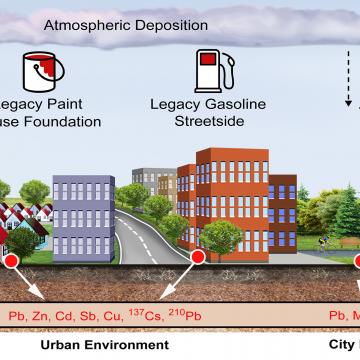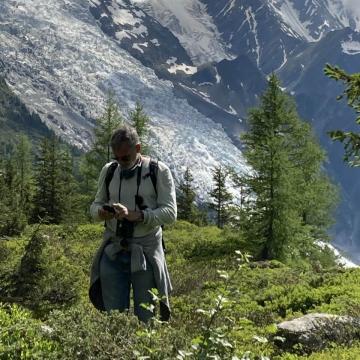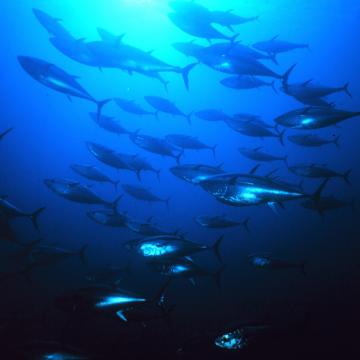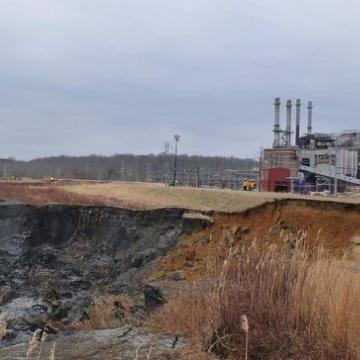-
NewsBy distinguishing between lead from modern sources and lead from pre-1970s vehicle exhaust fumes and leaded paint, the new test may be especially useful for assessing the hidden risks of legacy contamination.
-
NewsClouds of smoke and ash from wildfires that ravaged Australia in 2019 and 2020 triggered widespread algal blooms in the Southern Ocean thousands of miles downwind to the east, a new Duke University-led study by an international team of scientists finds.
-
NewsWarming waters along the Western Antarctic Peninsula have led to declines in the diversity and distribution of the region’s plankton population and its ability to absorb climate-warming carbon dioxide from the atmosphere.
-
NewsAs trees age and grow, it seems logical to assume their seed production will continue to grow, too, but a Duke-led study of 597 species worldwide nips that assumption in the bud.
-
NewsA new GPS-enabled study led by Duke University scientists provides the first landscape-scale documentation of elephant movements across and between seven national parks in Gabon and helps answer not only the questions of where and when the animals move, but also why.
-
NewsHarnessing the power of artificial intelligence, satellites and field observations, Duke researchers have produced new estimates of how much photosynthesis and primary production – key components in the global carbon cycle – are occurring in Earth’s oceans, and how these processes may be changing in response to a changing climate.
-
NewsNew research reveals western North American forests may be less able than eastern forests to regenerate following large-scale diebacks linked to climate change. Over time, this could dramatically alter the continent’s landscape.
-
NewsThe proliferation of pits and ponds created in recent years by miners digging for small deposits of alluvial gold in Peru’s Amazon has dramatically altered the landscape and increased the risk of mercury exposure for indigenous communities and wildlife, a new study shows.
-
NewsGovernments might be able to prevent future pandemics by investing as little as $22 billion a year in programs to curb wildlife trafficking and stem the destruction of tropical forests, a new analysis by an international team of scientists and economists shows.
-
NewsScientists at Duke University are harnessing the power of big data and geospatial analysis to create new ways to track the effects of climate change on species and food webs.
-
NewsBy providing the first estimate of how much hydrogen is available to fuel microbial life in the sunless sub-seafloor crust beneath the Mid-Ocean Ridge (MOR), a new Duke University-led study sheds light on one of Earth’s least understood biospheres.
-
NewsThe ratio of carbon isotopes in three common species of tuna has changed substantially since 2000, suggesting major shifts are taking place in phytoplankton populations that form the base of the ocean’s food web, a new international study finds.
-
NewsA new study which combines measurements from nearly 1,400 drinking water wells across North Carolina estimates that more than half of the wells in the state’s central region contain levels of cancer-causing hexavalent chromium in excess of state safety standards.
-
NewsPredicting if droughts and heat waves will kill forests is difficult, but new work by scientists and engineers at Duke, Princeton, Stanford and the University of Alabama (UA) could help scientists spot problems early enough that they can still mitigate the threats and help restore at-risk forests.
-
NewsWith the Environmental Protection Agency (EPA) poised to loosen coal ash rules for dry onsite storage and large fill projects, a new study from Duke University finds that leaving those contaminants exposed may significantly heighten the risk of toxic contamination to nearby soil and waterways.














